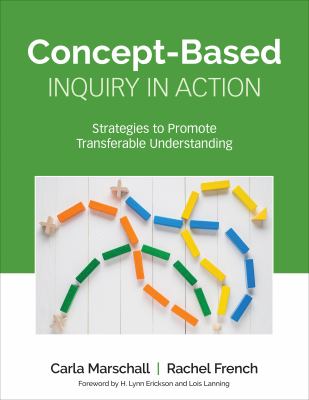
print
|
Concept-based inquiry in action : strategies to promote transferable understanding
Copies
1 Total copies, 1 Copies are in,
0 Copies are out.
Authors
Language
English
Series
Dimensions
28 cm.







